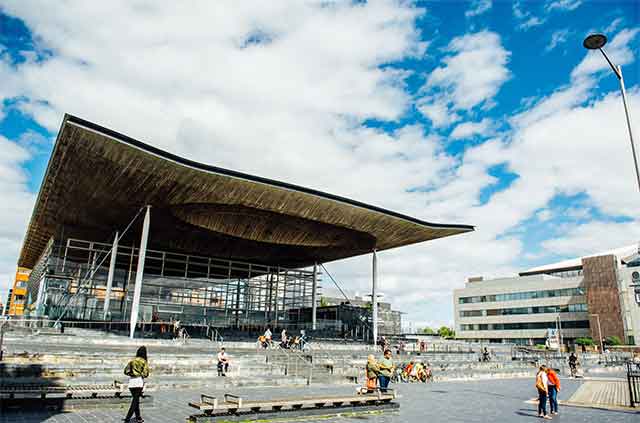Wales has been “hurt hardest” by Brexit amid a “mess” of trade barriers, cultural blockades and a “fading” Welsh presence in EU relations, Senedd committees have warned.
Delyth Jewell led an “unprecedented” cross-committee inquiry which found “unanimous” agreement from witnesses that the UK-EU trade deal has not benefited Wales.
The Plaid Cymru politician warned the Welsh Government was not informed of UK priorities in advance, leaving Wales with a “diminishing voice” and no “seat at the table”.
Ms Jewell, who chairs the Senedd’s culture and international relations committee, criticised UK ministers for refusing to give evidence to the inquiry or share their EU priorities.
She told the Senedd: “This is a moment for ambition and for Wales not to be a mere passive observer in the processes that happen.
“We must take an active role in shaping outcomes that matter to our culture, our economy, our environment, our communities.”
‘Unworkable’
Turning to the impact on culture, she said: “Touring artists, creative professionals and cultural organisations face barriers that were unimaginable before Brexit, barriers that restrict mobility, increase costs and diminish Wales’s cultural presence on the international stage.
“The evidence is stark – current arrangements for touring are described as unworkable.”
The debate heard the economic impact has been severe – with the EU remaining the biggest trading partner, accounting for 47% (or £17.6bn) of Wales’ total trade in goods.
Hannah Blythyn, for the economy committee, said 90% of businesses are still dealing with challenges, including increased bureaucracy, costs, time, and supply chain disruption.
The ex-minister said: “According to committee witnesses, processes cause extreme levels of cost, administration, complications and loss, intense annoyance, and are hugely frustrating.”
Ms Blythyn, who is the Labour Senedd member for Delyn, criticised the Welsh Government for rejecting calls to produce its own detailed impact assessment of the trade agreement.
She pointed out that such documents had been produced for trade deals with “Wales’ smaller trading partners, but not its largest to date”.
‘Incredible’
The report’s criticism was not limited to trade. Llŷr Gruffydd, chair of the climate committee, warned Wales has had a glaring environmental governance gap since the UK left the EU.
The Plaid Cymru politician expressed concerns about the UK-EU trade and cooperation agreement (TCA) containing no dedicated chapter on environment and climate cooperation.
Meanwhile, Mike Hedges – who chairs the Senedd’s legislation committee – sounded the alarm about Wales’ diminishing voice in UK-EU relations. He criticised ministers for “not stepping in” to support Welsh organisations’ involvement.
Mr Hedges told Senedd members the Welsh Government has not published any Wales-specific information, advice nor guidance on the TCA since 2021.
“This is incredible,” he warned during Wednesday’s (November 5) debate. “It is one of the most significant international treaties that will ever be considered by the Senedd.”
His Labour colleague Alun Davies told the Senedd he could “think of no witness… who said that Brexit had benefited Wales,” adding he was “astonished” the Welsh Government “doesn’t seem to want to set real objectives for the future”.
‘We are in a mess’
The criticism was echoed by Adam Price, the former Plaid Cymru leader, who said: “If I can sum it up – we are in a mess, aren’t we?”
Raising the World Trade Organisation’s first post-Brexit review of trade, Mr Price warned Wales has been “hurt the hardest” due to a reliance on exports and smaller companies.
Conservative Gareth Davies was the only speaker to defend Brexit as he challenged the premise of the committees’ report. He flatly rejected the report’s framing, stating the “debate is over” and the task is to “make Brexit work for Wales, not to re-run the arguments of 2016”.
Responding to the debate, Labour’s Rebecca Evans said the Welsh Government was focused on ensuring Wales’ distinct priorities are represented in UK-EU talks.
Wales’ economy secretary welcomed a “new, more positive direction” in EU relations but insisted it remains “vital that the views of devolved nations are heard”.

